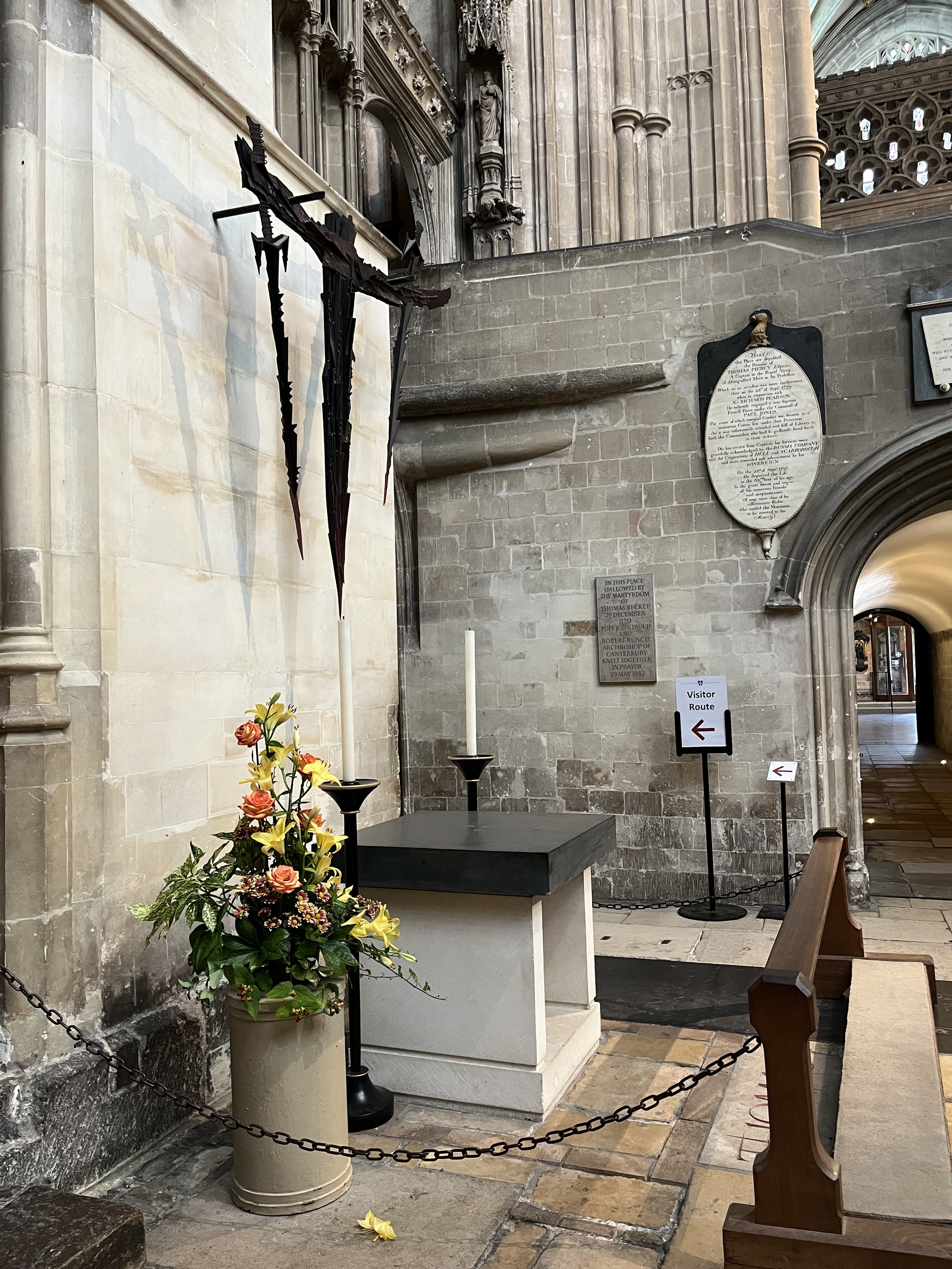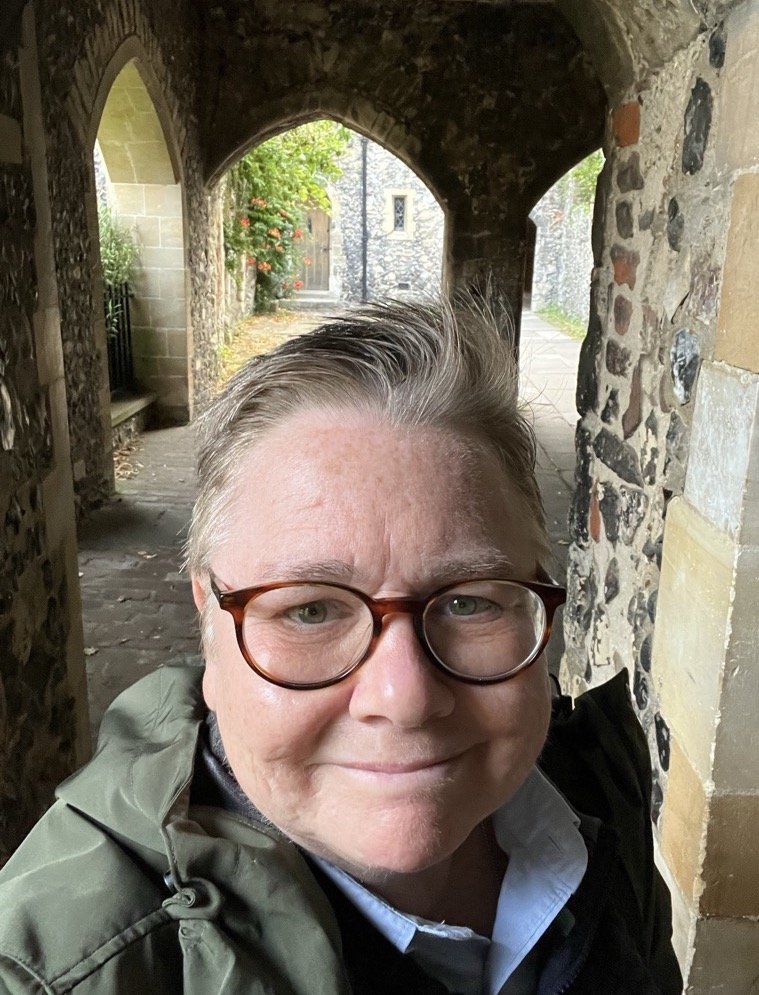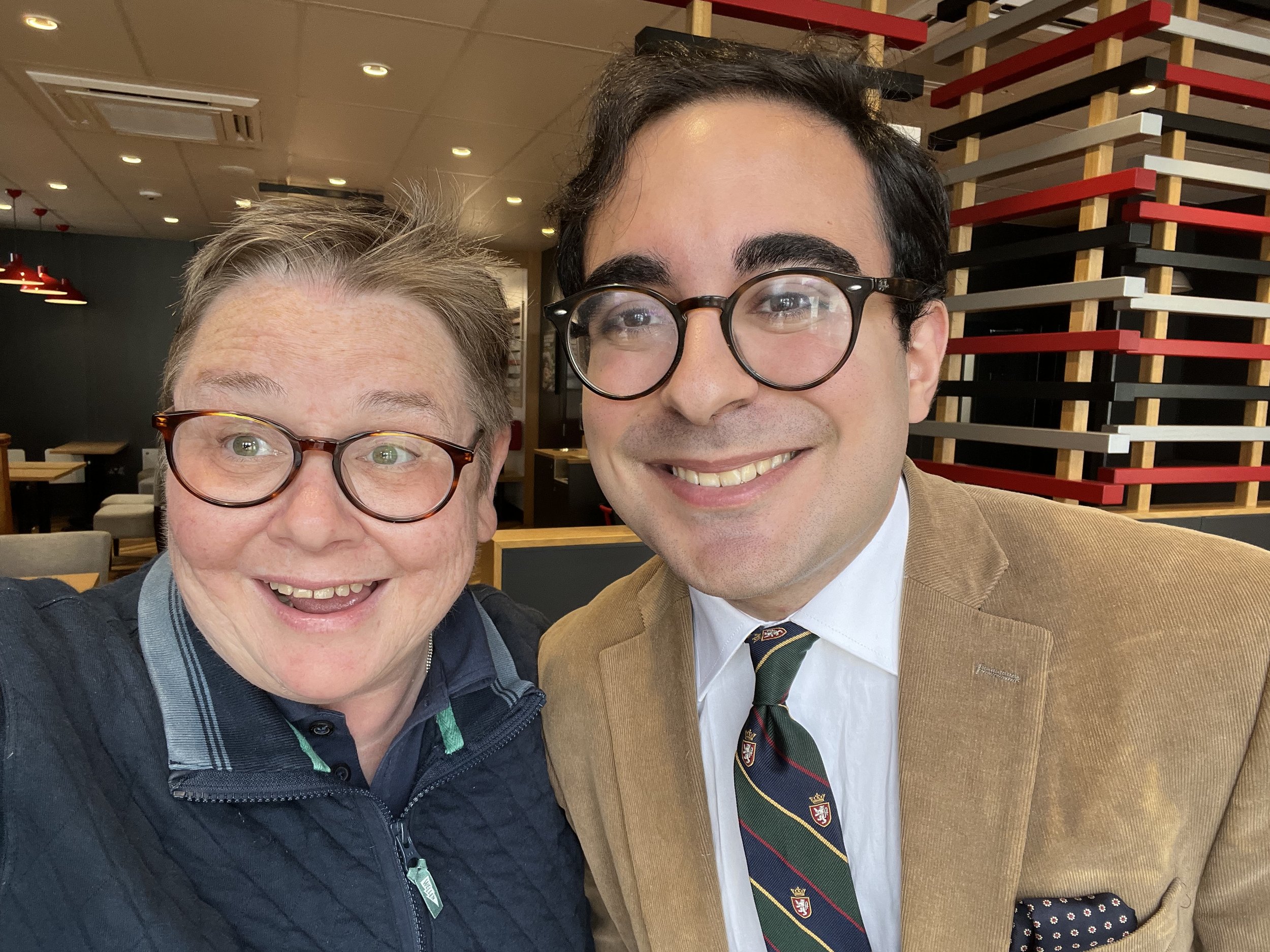The Great Dechurching
In the United States, we are currently experiencing the largest and fastest religious shift in the history of our country, as tens of millions of formally regular Christian worshipers nationwide have decided they no longer desire to attend church at all. These are what we now call the dechurched. About 40 million adults in America today used to go to church but no longer do, which accounts for around 16% of our adult population. For the first time in the eight decades that Gallup has tracked American religious membership, more adults in the United States do not attend church than attend church. This is not a gradual shift; it is jolting one. *
Dear Beloved of Trinity Church,
You may read the above selection from The Great Dechurching and find yourself despondent and afraid for the future of the church and our faith. I invite you however to take another look. What this means is that there are people all around us without a church home. When we speak of the dechurched that means people who used to be part of a community of faith, but for some reason, over a period of time, have fallen away from active participation in the church.
I will not go into the myriad reasons that has led to this decline in church participation and affiliation. But rather, I would like to propose that this means that we are living in a time with a great opportunity for growth and renewal. Consistently, the most effective tool in reversing this trend is not a social media presence, not a fancy membership program, not a new church building, but simply the willingness of one person to invite another person to come to church.
“If there is one single application from our research that you walk away with, please let it be this: invite your dechurched friends back to a healthy church with you. But unlike a simple nudge to go back to the gym, we would do well to open the doors of our homes and chairs at our table. We are not just telling them they should go back to church; we are inviting them into our lives, which includes church. Belonging (or lack thereof) is the primary pain point many dechurched feel. Of all the things people said would make them likely to return, this is the greatest felt need” (p.123)
As followers of Jesus Christ, we are called to invite people into our lives! “Church is not an event; it is a family. It not a perfect family, but it is a real spiritual family. We are, in some mysterious way, all grafted into Jesus’ body.” (p.125)
As we begin the new program year, I invite to invite someone to church. And remember, you are not inviting them to a spiritual or religious event, not inviting them to a building, not inviting them to join a club, you are inviting them into your life, into our family, an imperfect one for sure, but one that is ultimately defined and animated by bondless love of God. Trinity Church is not a building, not program, not service, not a creed. Trinity Church is you and me, imperfect people finding our way together held, sustained, and guided by the love the God.
I hope you feel that Trinity is truly worth being part of and something worth inviting someone to be a part of.
Peace and Blessings,
* Jim Davis and Michael Graham, The Great Dechurching: Who’s leaving, Why are they going, and What will it take to bring them back? (Grand Rapids, MI: Zondervan, 2023)
Kick-Off Sunday at Trinity Church
Did You Bring Me Anything?
Greta was understandably delighted to see me again after 11 days away. She asked me if I had brought her anything, and of course I did — a new collar and a chew toy.
As I was preparing to come home, I reflected on the gifts that I had received on my trip too.
When I walked St Cuthbert’s Way in 2015, the image that stayed with me was the path across the tidal sands marked with poles. Vocation — as I often tell folks — is a matter of walking from pole to pole, focusing on the next right step even though the end is hard to see. It was a word I needed as a new priest in the middle of a PhD program, anxious about jobs.
This time, as a more experienced priest in a long-term ministry setting, what struck me were the little markers on the trail. They are not large! And sometimes, like in this picture, they’re hard to notice if you aren’t looking, expecting to find them. This one led between the back of a house and a fence! I almost missed it. The word for me now is LOOK: look for the small signs of God at work, even where you least expect them. God is constantly at work at Trinity Church, and it’s important to constantly look for the markers.
I wanted to virtually share with you two more places that I hope to share with you in person: Little Gidding and Canterbury Cathedral.
An Introduction to Little Gidding
Inside the Church of St. John the Evangelist, Little Gidding
Canterbury Cathedral
A few extra pictures from Canterbury:
Walking the Pilgrims’ Way
Arriving at the West Gate of the city
The Compass Rose is the symbol of the global Anglican Communion
The site of the martyrdom of St. Thomas Becket, where I offered each one of your prayer requests. Thank you for entrusting me with the ministry of intercession.
Another view of St. Thomas’ martyrdom
The steps to the high altar, where St. Thomas’ shrine was located, have been worn down by pilgrims’ feet. It was also traditional to climb these steps on your knees.
Are you ready to look for some signs of God’s work here at Trinity Church? Let’s go!
Yours faithfully in Christ,
The Rev. Cn. Dr. Kara Slade, Associate Rector
A Postcard from the Pilgrims Way
Dear Trinity friends,
Greetings from the village of Chilham, where I am about to walk to Canterbury and take your prayers with me. I wanted to share a few moments of my travels so far. Check out the videos below, and see the pictures for more detail. I didn’t want to disturb people by making videos inside churches, so I took pictures instead.
In Christ,
The Rev. Cn. Dr. Kara Slade, Associate Rector
The Temple Church, London
Mother church of the Magna Carta and the common law
A wonderful example of Norman architecture
The round interior of the church is an allusion to the Church of the Holy Sepulcher in Jerusalem, and to the ties between the Knights Templar and Jerusalem
Church of St Mary the Virgin, Oxford
Reformation Memorial
The chancel is built at a slight angle to the rest of the church — your eyes aren’t deceiving you! This is called a “weeping chancel” and signifies the image of Jesus inclining his head towards penitent sinners in mercy.
The flat notch in this pillar was cut to hold the platform where Thomas Cranmer was supposed to publicly recant his Reformation ideals — and refused to do it.
A Few Bonus Pictures:
A procession for the feast of St Mary at the Anglo-Catholic parish of All Saints’ Margaret Street in London. The gentlemen in red coats are Chelsea Pensioners, retired soldiers who participated as an honor guard.
I ran into recent Princeton graduate (and ECP alum) JJ not once, but twice on this trip! If you are an 8am person you may know JJ from Trinity as well.
I also had the pleasure of dinner in Oxford with AKMA and Margaret Adam, who were at Trinity when Leslie Smith was rector.
Praying with Your Body
Sulking Doggo
Greta has been sulking today. She saw my travel pack emerge from the closet shelf and knows what that means: mom is going away.
On Friday morning, I will leave for an 11-day trip to England to make plans for a parish pilgrimage sometime in 2024 — and as a pilgrimage and time of renewal for myself.
Pilgrimage is not tourism. Tourism involves a change in where we are, a change in our experiences, but it doesn’t necessarily involve a change in us. Pilgrimage is a way of opening ourselves to God in order to be changed, restored, reconciled, and empowered for our vocations. Fr. Richard Rohr writes,
If no interior journey has happened, we really haven’t made a pilgrimage….we’ve just been tourists. We’ve traveled around and said, ‘I saw this, and I saw that, and I bought this,’ and so forth. But that’s what a tourist does, not a pilgrim. And God has called us on pilgrimage. Above all else, pilgrimage is praying with your body, and it’s praying with your feet. It’s an exterior prayer, and the exterior prayer keeps calling you into the interior prayer.
I hope that you will begin praying about whether God might be calling you on this pilgrimage next year, to learn and to be changed by God in the places where great deeds of faith have been done and where God is worshipped in powerful ways.
I also hope that you will send me your prayer requests. If you email me by Monday (sladek@trinityprinceton.org) with the subject line ‘Prayer Request,’ I will offer your prayers at the site of St. Thomas Becket’s martyrdom at Canterbury Cathedral, where thousands upon thousands of prayers have been said over the centuries.
The Rev. Cn. Dr. Kara Slade, Associate Rector



























